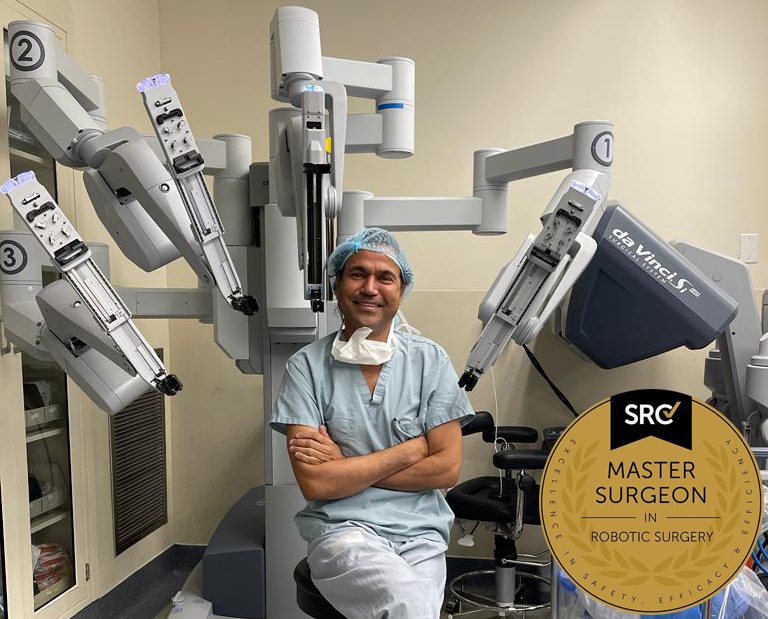What are the Non-surgical Approaches for Managing Endometriosis?
Endometriosis is a condition in which tissue similar to the lining of the uterus grows outside of the uterus, causing pain and discomfort. While surgery is often used to treat endometriosis, there are non-surgical approaches that can be helpful as well.
Here are some options:
- Pain management: Over-the-counter pain medications such as ibuprofen and acetaminophen can help manage pain associated with endometriosis. In some cases, prescription pain medication may be necessary.
- Hormonal therapies: Hormonal therapies such as birth control pills, hormonal IUDs, or progestin-only therapies can help regulate the menstrual cycle and reduce the amount of endometrial tissue that grows outside of the uterus.
- Dietary changes: Some people with endometriosis find that dietary changes can help reduce symptoms. For example, some people report that reducing their intake of red meat and dairy products, and increasing their intake of fruits, vegetables, and omega-3 fatty acids can help.
- Physical therapy: Physical therapy can be useful for people with endometriosis who experience pelvic floor muscle tension or pain. A physical therapist can work with you to develop exercises and stretches that can help alleviate pain and discomfort.
- Mind-body therapies: Mind-body therapies such as meditation, yoga, and acupuncture can help reduce stress and improve overall well-being, which can in turn reduce symptoms of endometriosis.
It’s important to note that these approaches may not work for everyone, and that surgery may be necessary in some cases. If you are experiencing symptoms of endometriosis, it’s important to talk to your healthcare provider about your treatment options.
Hormonal Therapies
Hormonal therapy is a common treatment option for endometriosis. The goal of hormonal therapy is to reduce the production of estrogen in the body, which can help slow the growth and spread of endometrial tissue.
Here are some types of hormonal therapy that may be used to treat endometriosis:
- Combined hormonal contraceptives: Birth control pills, patches, and vaginal rings contain a combination of estrogen and progestin hormones, which can help regulate the menstrual cycle and reduce the growth of endometrial tissue.
- Progestin-only contraceptives: Progestin-only contraceptives, such as the mini-pill, Depo-Provera injection, and progestin-containing intrauterine devices (IUDs), can help reduce the growth of endometrial tissue and alleviate symptoms of endometriosis.
- Gonadotropin-releasing hormone (GnRH) agonists: GnRH agonists are medications that work by reducing the production of estrogen in the body. They are usually given as injections or nasal sprays and can be effective in reducing the growth and spread of endometrial tissue.
- Aromatase inhibitors: Aromatase inhibitors are medications that block the production of estrogen in the body. They are typically used in postmenopausal women who have endometriosis.
It’s important to note that hormonal therapy may have side effects, and it may not be effective for all women with endometriosis. Your healthcare provider can help you determine if hormonal therapy is a good option for you and can help you weigh the potential benefits and risks.
Diet and Nutrition
Omega-3 fatty acids
Omega-3 fatty acids, which are found in fish oil, may be helpful in reducing inflammation and pain associated with endometriosis. Studies have shown that omega-3 fatty acids can help reduce prostaglandin production, which is responsible for the painful menstrual cramps associated with endometriosis.
In addition to reducing pain, omega-3 fatty acids may also improve fertility in women with endometriosis. Endometriosis can cause infertility due to the presence of endometrial tissue outside of the uterus, and omega-3 fatty acids may help improve the quality of the endometrial tissue in the uterus, making it easier for fertilization and implantation to occur.
It’s important to note that while omega-3 fatty acids may be helpful in reducing symptoms of endometriosis, they should not be used as a substitute for medical treatment.
Cucumin
Curcumin is a natural compound found in turmeric, a spice commonly used in Indian and Middle Eastern cuisine. It has been studied for its potential health benefits, including its anti-inflammatory properties. Some studies have suggested that curcumin may be helpful in reducing symptoms of endometriosis.
One study published in the journal Evidence-Based Complementary and Alternative Medicine found that curcumin was effective in reducing pain associated with endometriosis. Another study published in the Journal of Ovarian Research found that curcumin was effective in inhibiting the growth of endometrial cells in vitro.
While these studies suggest that curcumin may be helpful in reducing symptoms of endometriosis, more research is needed to confirm these findings. It’s important to talk to your healthcare provider before taking any supplements, including curcumin, as they may interact with other medications or medical conditions.
Reduce Saturated and Trans Fats
Reducing the intake of saturated and trans fats in the diet may be helpful in managing endometriosis. Studies have shown that a diet high in saturated and trans fats may increase inflammation in the body, which can worsen symptoms of endometriosis.
Saturated fats are found in animal products such as meat and dairy, as well as in some vegetable oils like coconut oil and palm oil. Trans fats are found in processed foods like margarine, fried foods, and baked goods.
Replacing saturated and trans fats with healthy fats such as monounsaturated and polyunsaturated fats can be beneficial for overall health and may help reduce inflammation in the body. Healthy fats are found in foods such as nuts, seeds, avocado, fatty fish, and olive oil.
It’s important to note that dietary changes alone may not be enough to manage endometriosis, and that medical treatment may be necessary.
Vitamin Supplementation for Endometriosis
There is limited research on the effectiveness of vitamin supplementation for the management of endometriosis. However, some studies suggest that certain vitamins may be helpful in reducing symptoms and improving overall health.
Here are some vitamins that have been studied in relation to endometriosis:
Vitamin D: Low levels of vitamin D have been associated with increased inflammation and pain in women with endometriosis. Supplementing with vitamin D may help reduce inflammation and pain associated with endometriosis.
Vitamin E: Vitamin E is an antioxidant that may help reduce inflammation and improve immune function. Some studies suggest that vitamin E supplementation may help reduce pain associated with endometriosis.
Vitamin B6: Vitamin B6 is important for hormone balance and may help regulate the menstrual cycle. Some studies suggest that vitamin B6 supplementation may be helpful in reducing symptoms of endometriosis.
It’s important to note that vitamin supplementation should not be used as a substitute for medical treatment. Additionally, taking high doses of vitamins can have side effects and may interact with other medications or medical conditions, so it’s important to talk to your healthcare provider before starting any supplements.

Physical Therapies
Physical therapy may be a helpful treatment option for women with endometriosis, particularly for those who experience pain during sexual activity or pelvic exams.
Here are some ways that physical therapy may be used to treat endometriosis:
- Pelvic floor muscle therapy: Pelvic floor muscle therapy involves exercises to strengthen the pelvic floor muscles, which can help alleviate pain and improve sexual function. This type of therapy may involve biofeedback to help you learn how to control the pelvic floor muscles.
- Manual therapy: Manual therapy may include massage or manipulation of the pelvic muscles, which can help alleviate pain and improve mobility.
- Exercise: Exercise, particularly low-impact activities like yoga or swimming, can help improve overall fitness and reduce pain associated with endometriosis.
- Education: Physical therapists may provide education on pain management techniques and strategies to improve daily activities and minimize discomfort.
It’s important to note that physical therapy should be used in conjunction with other medical treatments for endometriosis, and that not all women with endometriosis will benefit from physical therapy.
Important Reminder
Endometriosis is a painful and often debilitating inflammatory condition that can greatly impact a woman’s quality of life. However, there are natural remedies and lifestyle changes that can be effective management tools for reducing symptoms and improving overall health with little to no risk.
If you have tried natural remedies and your symptoms have not improved, it is important to seek medical advice from your doctor on the next steps for managing your condition. Don’t let endometriosis go untreated as it can significantly affect your daily life and well-being.
Latest Posts
- New York Gynecology Endometriosis
- Contact Info:
-
375 E. Main Street,
Suite 7A, Bay Shore,
NY 11706 - (631) 533-9733
Pankaj Singhal, MD, MS, MHCM
Master Surgeon in Robotic Surgery
Dr. Pankaj Singhal, a globally recognized endometriosis surgeon, possesses over 25 years of expertise in laparoscopic excision surgery, enabling him to tackle even the most challenging endometriosis cases with confidence. Dr. Pankaj treats patients with diverse endometriosis-related conditions, ranging from ovarian endometriomas to severe deep infiltrating endometriosis that affects the bowels and other organs.
Dr. Pankaj prioritizes minimally invasive surgery and provides comprehensive personal care. Additionally, he is the owner and founder of New York Gynecology and Endometriosis (NYGE), and has dedicated his life to advocating for, respecting, and treating women suffering from this little-known disease. He is one of the few surgeons in the entire United States who have completed over 5,718 robot-assisted gynecologic surgeries.

We Accept Most Major Insurance Plans
Convenient Billing Options for Comprehensive Coverage.
Surgeries are typically covered by health insurance. However, the extent of coverage can vary depending on the specific insurance plan and policy. Some insurance plans may cover a broad range of surgical procedures, including both elective and necessary surgeries, while others may have limitations or exclusions for certain procedures.
In some cases, certain insurance plans or programs may fully cover the cost of surgery, leaving the patient with no financial responsibility.
Request an Appointment with
New York Gynecology Endometriosis
"*" indicates required fields
